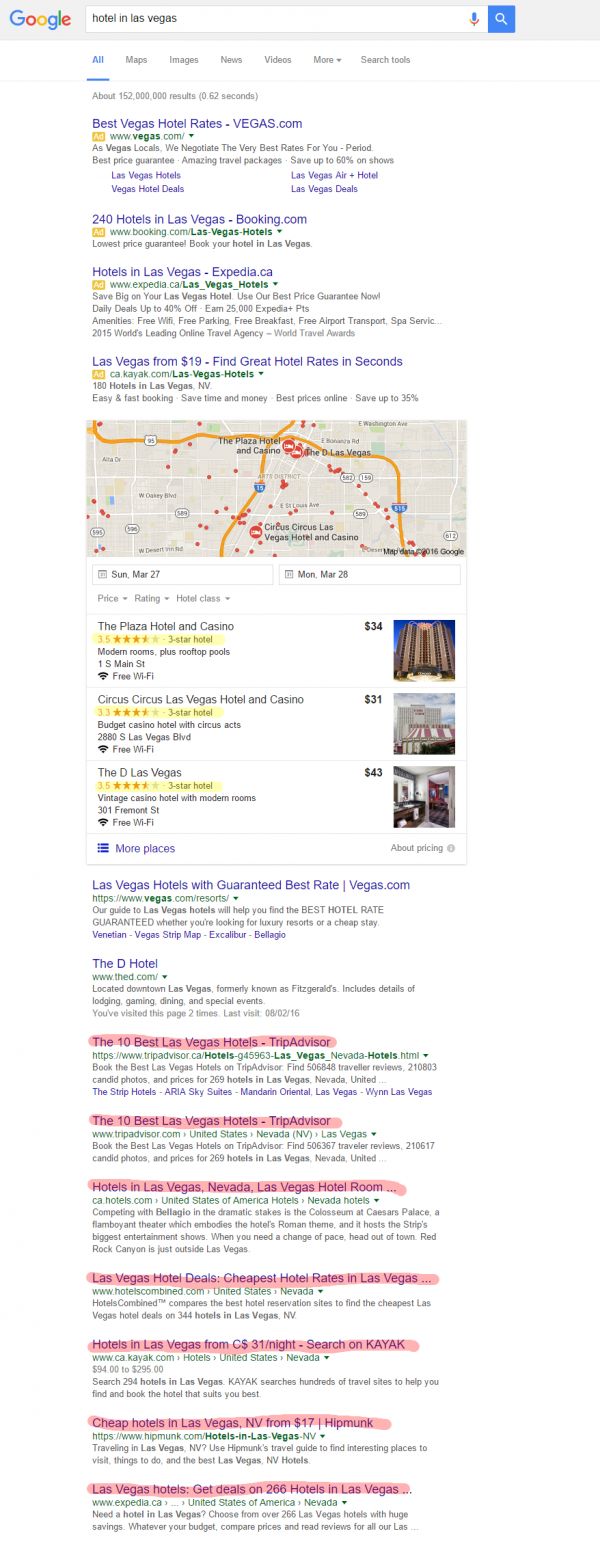I’ve chatted with a lot of businesses lately that are dedicating the start of 2016 to reevaluating their social media strategy. Some are taking a deeper look at their analytics and changing what they post and when they do it. Others are realigning resources to better maximize their efforts. It’s refreshing to see companies making legitimate changes and not simply reshuffling the deck chairs. Posting habits are changing, data and analytics are getting some love and smart decisions are being made.
I recently did a presentation that talked about some of the digital marketing activities (beyond posting) that play an important role in a social media strategy. Companies sometimes get so caught up in posting content that they forget about other areas of importance. Things like…
- Content creation
- Analytics review
- Social media monitoring
- Blogger and influencer outreach
- Social media channel advertising
- Review management
Although all of these are important, the review management aspect is something that I really think companies should pay more attention to. I started to think about it a bit more. We know reviews can have direct impact on consumer decision making, and ultimately, sales. We also know that people can create reviews without a company even knowing (if they’re not paying attention) and that these reviews can be scattered all over the online world.
I started to think about it a bit more… and it begged the question…
What if a company made reviews the focus of their social media strategy? What if a company used their limited resources to monitor and encourage reviews instead of posting on channels like Facebook and Instagram?
Think it’s a crazy idea? Think again.
Regardless of how awesome your social media activities are, there’s a good chance your customer begins their decision making journey on a search engine like Google. They type in something like hotel in las vegas and start looking through the top ranked items. Below is a screenshot of what they might see.

I’ve highlighted direct mentions of reviews in yellow and links to pages that feature reviews in red. It would appear that someone looking to book a hotel room in Las Vegas will come in contact with reviews at some point. Think reviews are just a thing for hotels and restaurants? Have a look at this screenshot of a Google search for edmonton plumbers…

It’s a safe assumption that reviews will play a role in the decision making process of people viewing these search results. People trust peer reviews and want to learn more about a company than what is put forward in ads. They want to know the real story. Will this company deliver on their promises? Is the food really good at this restaurant? Is this car worth the extra money? They turn to online reviews to read real stories from real people… good or bad.
It’s a bit strange to me that businesses will often turn a blind eye to something so trusted by consumers. If someone came into your place of business and told you that your product was horrible, you might brush it off as something coming from “a crazy person that doesn’t know what they’re talking about”. Ok fine.. I see that.
What if these comments became more frequent and they were public for everyone to see? That might be a problem. Welcome to the world of online reviews.
Do People Actually Use Online Reviews?
BrightLocal does an annual Local Customer Review Survey where they ask people about online reviews and their role in the decision making process. Here are a few of the key takeaways from their 2015 BrightLocal Consumer Survey…
- 92% of consumers now read online reviews (vs. 88% in 2014)
- 40% of consumers form an opinion by reading just 1-3 reviews (vs. 29% in 2014)
- Star rating is #1 factor used by consumers to judge a business
- 44% say a review must be written within 1 month to be relevant
- Only 13% of consumers consider using a business that has a 1 or 2 star rating
- 68% say positive reviews make them trust a local business more (vs. 72% in 2014)
- Consumers are becoming more concerned about fake reviews
Making Reviews Your Strategy
Don’t get me wrong… social media is still an important and effective communications and marketing tool. Websites and content are still a big deal. Online advertising works wonders. Encouraging, monitoring and responding to online reviews isn’t really the “sexiest” thing in the world but it could be one of the most important things you do.
So let’s just say you’re a business with limited resource time but you still want to somehow make a positive impact online. Why not try to be the best (Insert type of business here) in (Insert your city or town here) on popular review websites? Why not be the company that encourages customers to leave reviews and then be the company that promptly responds to them online? Why not be the company that actually reads reviews (beyond the star rating) and uses that feedback to help shape your products and services?
Listening to customers and using their feedback to make an even better product or service. Crazy huh?
How I Would Do It
If I were a business that decided to double down on reviews, here’s how I would do it…
- Claim my business on popular review websites – the process is basically the same across the board but each site might have slightly different nuances. A good place to start would be Google, Facebook and Yelp.
- Find a program that can help you better manage your reviews. We like Reputology because it makes things really simple.
- If you’re an actual brick and mortar business, look at creating some sort of marketing piece that encourages customers to review you online. This could be a little card, signage, stickers or even a printed message on the bottom of your receipts.
- If you have an online presence, look at creating something similar online. This could be a button linking to popular review websites or even some messaging on your website.
- Be prepared for the good and bad. Craft legit and personal (not robotic replies) to reviews as they come in. Actually read feedback and track the most common concerns and praise.
- Do something with you data. Responding to reviews is great. Using consumer feedback to help shape your business is even better. Let them know you’re listening and willing to change to better serve them.
Regardless of the number of reviews you receive, having a plan like this should keep them manageable. The goal is to not only encourage reviews but to maintain a positive online presence around your brand. Ultimately customers will make their own decision but you might as well at least be part of the conversation.
Recent Posts
Boost Business Efficiency with Google Workspace Automation Tools
Streamlining Your Business with Google-Based Automations Hey there, fellow business owners! If you’re like most of us, you probably feel like there just...
Harnessing Google Tag Manager for Better User Insights and Performance Tracking
Unlocking the Power of Google Tag Manager: Simplifying Tracking and Understanding User Behavior Hey there, fellow business owners! If you’re navigating the digital...
AI Max: Transform Your Google Search Ads Strategy Today
Unleashing the Power of AI with Google Ads’ New AI Max Hey there, fellow business owners! If you’re anything like us at Strong...


